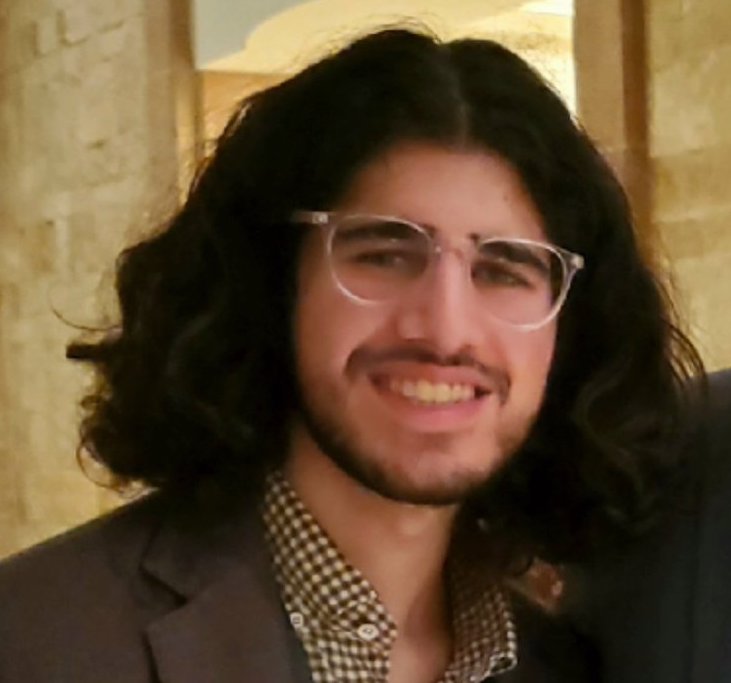The Institute of Child Development (ICD) recently awarded the Anne D. Pick Award for an Outstanding Developmental Psychology Senior to Salahudeen Mirza. The award honors ICD Professor Emeritus Anne Pick’s commitment to undergraduate students. Students selected for the award demonstrate excellence in both research and academics in the area of child development.
Salahudeen Mirza is a senior majoring in developmental psychology with minors in cellular/molecular neurosciences and genetics. His parents were born in Pakistan, and he was born in Canada. Read our Q&A with Salahudeen to learn more about his time at ICD.
How did you become interested in developmental psychology?
As a teenager, I became very interested in preventing child abuse and supporting children who were abused. This was a deep and personally meaningful priority for me, and I wanted to devote my life to supporting those children who I thought were dealt a “difficult hand of cards.” I started as a biology student with an interest in complementing what we know about psychosocial risk with additional information on potential biological changes which facilitate the embedding of childhood abuse experience “under the skin.” It just so happened that I was in Liza Meredith’s introductory psychology course my first semester of undergraduate, and she invited Megan Gunnar, Melissa Koenig, and Jed Elison to discuss their work in child development as part of the course. It was Megan Gunnar’s lecture which deeply resonated with me, and I immediately switched my program to child development. I began to become interested in preventing suicide, especially in teenagers. I felt that there was very little known about suicide (especially in the biological domain) and that I had a real opportunity to spend my life contributing to a deeper understanding of what suicide is, as well as how we could potentially intervene to prevent people from getting on the “road to suicide” (or help them merge off of it).
Tell us what you’ve enjoyed most about your time at ICD?
The people who are part of the Institute of Child Development are genuinely one of a kind. I don’t think there is anywhere else in the world that could compare to the special environment which has been cultivated here. Individuals in this department have been leading the world in understanding patterns in lifespan development, and there is a deep history in developmental psychopathology as well. Aside from being excellent researchers, many of the faculty members in ICD have been my mentors and friends. I have always felt that my mentors in ICD were invested in my success and actively interested in my development as a person. Bonny Donzella supported me even when it meant joining a different lab which focused more specifically on suicide. Dante Cicchetti encouraged me to pursue external training in epigenetics, which led to me completing two summer training fellowships in Houston, Texas. Jed Elison met with me to discuss my hopes for my career and help me to choose between different training paths. Phil Zelazo pushed me to think more deeply about my research questions as part of his departmental honors seminar. Sylia Wilson connected me with postdoctoral fellow Jon Schaefer to better understand the methodology underlying twin studies.
What activities or opportunities have you participated in that you have found most helpful?
My involvement in research on suicide has been among the more meaningful activities I have been part of in undergraduate. Much of my focus as part of the Research in Adolescent Depression lab, under the supervision of Bonnie Klimes-Dougan and Katie Cullen, has been on the involvement of stress physiology in self-injurious thoughts and behaviors during adolescence. I have also been interested in understanding how to integrate this information with other relevant measures, such as brain structure and function, self-reported stress, and observed stress. A developing interest in the intergenerational patterns in suicidal behaviour (i.e., suicide tends to run in families) led me to several ongoing studies attempting to understand signs of biological vulnerability in the children of parents who have engaged in suicidal behaviour. This interest has been complimented by collaboration with Gabriel Fries (UTHealth Science Center at Houston) on psychiatric genetics studies of suicide. With Bonnie, I have had the privilege to work on more measurement-focused studies, and I even did a short stint studying a specific receptor in mice under the supervision of Julia Lemos in the Department of Neuroscience. I have also benefited from collaborations with Pakistani researchers as I have sought to understand the epidemiology of suicide in Pakistan, especially for youth, and potential interventional strategies.
What are your goals for after graduation?
I am currently deciding between a few combined MD/PhD training programs. These are programs which allow students to earn both their medical degree and a research doctorate to ultimately practice as both physicians and research scientists. I applied to schools which not only had good resources to study suicide, but also groups of people interested in developmental science. It is my hope that throughout my career I am able to continue to innovatively integrate child development and psychiatry to develop preventive and interventional strategies for youth suicide.
What advice do you want to give to other ICD undergraduate students?
Don’t be afraid to dream big. The biggest asset that you can have is connections with supportive people. There are plenty of great people both within and outside of ICD. Feel confident to e-mail them asking for advice or opportunities, and don’t let rejection slow you down. My most important advice would be to think deeply and carefully about what you want from this life and to identify a future that will be personally meaningful.
Is there anything else you’d like to mention about your time at ICD
I would like to take this opportunity to thank a few people for this award. First, I would like to thank Meghan Eliason, who guided me along my educational journey in child development. Megan Gunnar and Bonny Donzella supported me in first entering the world of academic research. Jed Elison, Dan Berry, Sylia Wilson, and Phil Zelazo have been kind and familiar friends in the Department. Dante Cicchetti first inspired me to think critically about how I wanted to approach the issues that I study. Bonnie Klimes-Dougan and Katie Cullen (Departments of Psychology and Psychiatry) have been my long-term research mentors and my good friends. Andrea Wiglesworth and Kate Carosella (graduate students) have given me many opportunities to grow. Gabriel Fries (UTHealth Science Center at Houston) welcomed me into the world of molecular psychiatry and has been a close mentor and support. Liza Meredith (Department of Psychology) has mentored me since my first semester at the University and encouraged my studies in the psychological sciences. I cannot say thanks without including my parents, my siblings, and my grandparents, who share in any success I ever achieve and who I have in mind for any good that I am able to accomplish. Finally I want to take this moment to remember those who are not with me today, who I wish could be here to see their share in this achievement.
ICD would also like to congratulate Amelia Spaeth as an Honorable Mention recipient for the Anne D. Pick Award. Amelia is a senior finishing her developmental psychology bachelor’s degree and a public health minor. She has been a RA in the Bioecology, Self-regulation, and Learning lab and a community volunteer with YMCA youth mentoring programs. She is currently a research assistant working on PhD student Meriah DeJoseph’s dissertation the Learning in Early Adolescence Project and preparing a poster for the Society of Research in Child Development 2023 conference. After graduation, she will be applying to full-time positions in labs focused on adolescents and social development.
Congratulations Salahudeen and Amelia!





